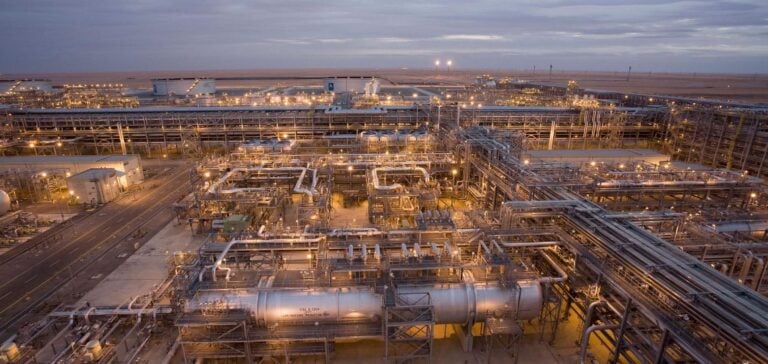Saudi Arabia is planning to reduce the official selling prices (OSP) of its crude oils for Asia in October, in response to the fall in the Dubai benchmark price and the low refining margins observed in China.
According to several industry sources, the price of Arab Light could fall by 50 to 70 cents per barrel.
This reduction follows the trend of Dubai oil price differentials recorded in the previous month.
The OSP adjustments serve as a benchmark for other producers in the region such as Iran, Kuwait and Iraq, impacting around 9 million barrels per day of crude destined for Asia.
Refining margins in Asia, particularly China, are under pressure due to weakening demand in the manufacturing and real estate sectors.
In September, a month normally conducive to increased fuel demand, the market may not be as buoyant as expected, prompting refiners to reconsider their supplies.
Saudi Arabia’ s price adjustments are intended to align with this regional economic reality.
Increased Supply and Market Pressure
In October, OPEC+ supply increases, with eight members set to increase production by 180,000 barrels per day.
This move is a step in the gradual dismantling of previous production cuts, while maintaining further limitations until the end of 2025.
This increase in supply, combined with low refining margins, adds further pressure on Saudi crude prices.
Nevertheless, some sources believe that the PSO for Arab Light could remain unchanged.
This is due to the recovery of the Dubai benchmark in the last week of August, a sign of resilience in a volatile market.
This divergent outlook demonstrates the complexity of oil markets, where prices are sensitive to a combination of demand and supply factors, competitive strategies and production costs.
Foreseeable price variations for heavy grades
For heavier crudes, such as Arab Medium and Arab Heavy, price reductions could be less marked.
Three of the five respondents surveyed expect decreases of less than 50 cents, supported by steady demand for fuel oil in Asia, which remains resilient despite contraction in other sectors.
Two others are forecasting larger adjustments, between 60 and 80 cents per barrel.
These estimates reflect a nuanced reading of market conditions, where fuel oil, crucial for power generation and shipping, retains its place despite general slowdown trends.
Saudi Arabian Oil Company (Saudi Aramco) determines its prices on the basis of customer recommendations and changes in the value of its oils over the previous month, depending on yields and finished product prices.
Saudi OSP prices are published around the 5th of each month and influence the purchasing strategies of Asian refineries, which follow these trends to optimize their costs and meet local demand.
Implications for refiners and purchasing strategies
Saudi crude price adjustments have important implications for Asian refiners, particularly in China.
The decision to lower PSOs in October could lead to an increase in purchases, although tight margins are forcing refiners to adopt a cautious approach.
Purchasing strategies will also depend on variations in the prices of other producers in the region, such as Iran and Kuwait, whose prices often follow the Saudi trend.
These adjustments are essential to balance competitiveness and profitability in an unstable global market.
Asian refiners will continue to monitor these developments closely, adapting their strategies according to prices, margins and regional demand forecasts.






















